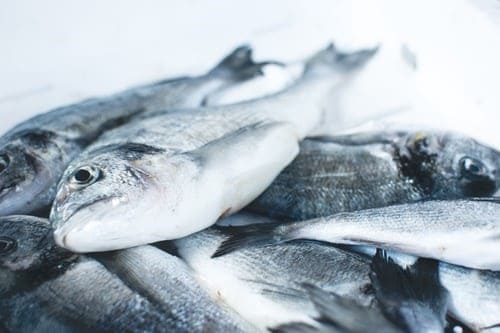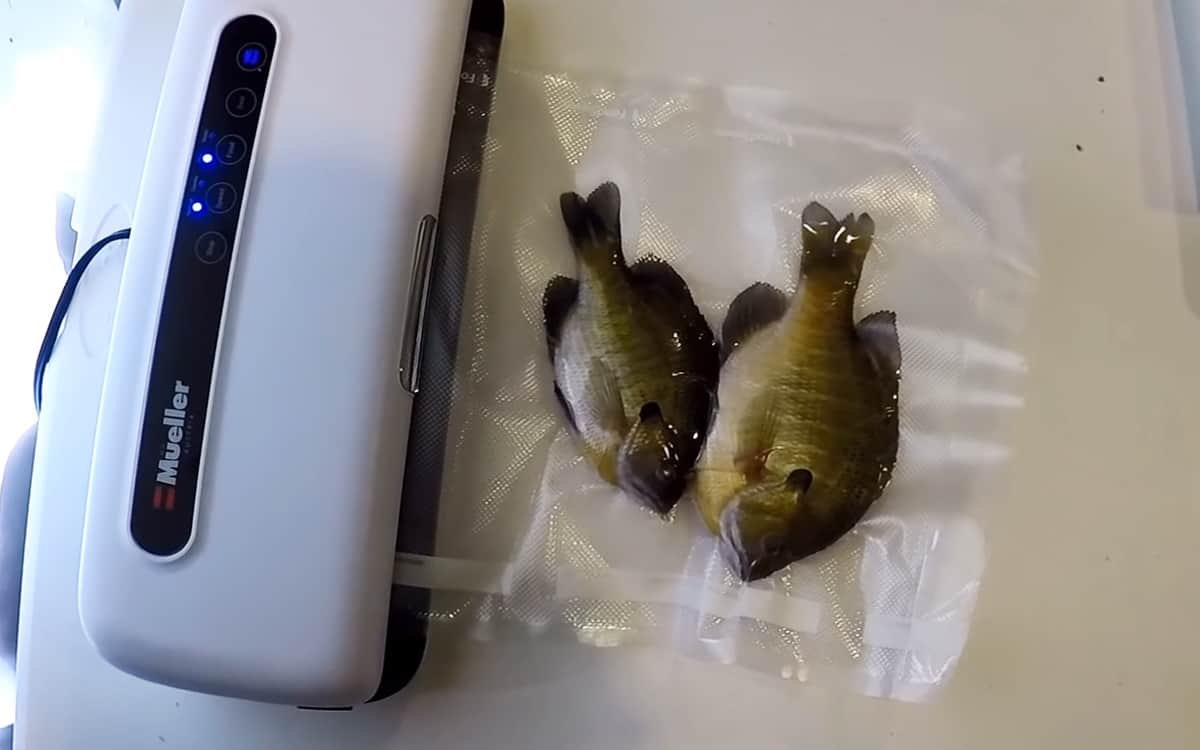In an emergency, fishing is a good way to get meat and protein. However, fish can go bad quickly if they are not treated properly. How long a fish can be kept after being caught largely depends on the weather conditions, the type of the fish, and the methods used to catch them.
Ideally, it’s best to cook the ungutted fish within 6 to 12 hours of capture. The fish must be cleaned, bled, and gutted before storage. Refrigerated fish at 40 degrees Fahrenheit will be viable for 2 to 3 days. Frozen fish can be viable for 3 to 8 months before their quality deteriorates.
What To Do After Capture
There are a few preparatory steps to do before storing the fish.
Avoid Mishandling

Make sure to handle the fish with care. Hold the fish with both hands to prevent them from struggling. Avoid throwing them into buckets as this may bruise the flesh or tear their gut.
One way to keep your fish fresh is to keep them alive until it’s time to cook them. If you’re aiming to store the fish, it’s ideal to kill the fish right away.
You can do this in two ways. The first is through percussive stunning in which a forceful blow is inflicted on the fish’s head. The second method is through spiking in which a sharp spike, like a sharpened screwdriver or an ice pick, is driven through the skull to stab the brain.
Bleed The Fish
Bleeding the fish before storage ensures that it stays fresh and viable for the longest time possible. Cut deeply behind the gills. Do so in a downward slicing motion, from the top to the bottom. This will sever the main blood vessels that sustain the gills. Blood will immediately gush out. Allow the blood to flow for about two minutes. Rinse the fish thoroughly to prepare for storage.
Scale And Gut The Fish
Take a knife and use it to remove the scale of the fish. This is the hard and inedible part. Next, slice along the bottom of the fish to access the gut. Refer to this video for a complete guide.
Put The Fish On Ice
Putting fish on ice is the easiest, short-term storage solution to keeping your fish fresh. Icing can be performed inside a cooler. Simply place the cleaned and gutted fish in some ice to keep its flesh firm and fresh. Here are some tips to remember:
- Use crushed ice. Crushed ice is better than blocked ice because it can surround the fish better. Crushed ice will cover more surface area so that the entire fish will be cooled.
- For every pound of fish, use two pounds of ice. This ratio ensures that there’s enough ice to cover the entire fish. You can expect the ice to melt every few hours so make sure to drain the cooler and add more ice.
Refrigerate The Fish
If you wish to keep the fish for at least two to three days, you can try refrigeration. This isn’t advisable during emergencies because the electricity source might be cut off. It’s also important to note that each day that passes will cause the meat’s quality to decline. Ideally, you should consume fish as soon as possible.
Refrigeration is better for larger and leaner fish. If you have small, fatty fishes such as salmon, it’s better to cook those immediately rather than storing them.
Freeze The Fish

Freezing allows you to store the fish for three to eight months. If you have a really reliable freezer, you can even make your stock last for an entire year. There are two methods to freezing:
- Freeze the whole fish. This is convenient and more advisable for smaller fish. Scale and gut the fish. Rinse the fish cavity by subjecting it to a strong stream of cold water. Place the entire fish in a Ziploc bag, a vacuum-sealed bag, or any other airtight container. Frozen lean fish will last up to six months. Fatty fish will only last for three months.
- Ice glazing method. This method is better but will require a lot of time. Prepare a metal baking pan and then place it in the freezer for ten to twenty minutes. Prepare some cold water as well. Dip the fish in the water and then place it on the tray. Allow the glaze of water to freeze. Do this method layer by layer until you get an ice glaze that is about a quarter of an inch thick. Place the frozen fish in an airtight container and then freeze.
Can You Freeze Ungutted Fish?

Yes, you can freeze ungutted fish. Store the whole fish in clean bags and freeze them. The subzero temperature will prevent the microorganisms from growing. Once you’re ready to cook and serve the fish, then you can simply defrost and then gut it. Take note that frozen fish is only viable for three to eight months.
Keep in mind that this is not recommended. There’s still a chance for the microorganisms to grow and cause decomposition. They may cause the quality of meat to decline. It’s ideal to gut the fish before storage. If you captured a big fish, clean it, and then freeze it in sections.
Another thing to remember is to avoid refreezing thawed fish. The thawing process will accelerate decomposition.
Storing Cooked Leftovers
Cooked leftovers must be cooled and refrigerated as soon as possible. Limit the number of exposures to room temperature because this will encourage bacterial growth. Place the cooked fish in a shallow and sterilized container and then refrigerate. It can last for two to three days at 40 degrees Fahrenheit. You can also freeze them and make them last for a month. Remember that thawed food cannot be frozen again. Once thawed, make sure to consume it as soon as possible.
